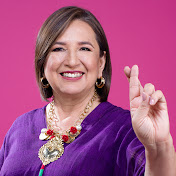Her organization has tested more than 13,000 people for the coronavirus since April 16, and even in the early autumn she could see where the numbers were headed — up. Stanford, who grew up in North Philadelphia and is now on staff at Abington Hospital Jefferson Health, usually hosts about 20 people at her house in Montgomery County for Thanksgiving dinner.
“They were like, ‘No way, no how,’” Stanford said last week. So, just she and her husband, a CPA, and the three kids who live at home, will celebrate together. She’ll send catered food to other family members.
She thought five days of isolation at home was a small price to pay for a chance to hug her family. “That would be great,” she said, her voice tinged with disappointment, “but everyone else didn’t feel that way.”
Her private experience does not bode well for the community she serves, as the most dangerous period of the coronavirus pandemic approaches. Cold weather will drive people inside, increasing viral spread unless people are willing to make big social sacrifices. Case numbers are rising at alarming rates, also raising the risk that someone you trust has been exposed. Stanford’s relatives didn’t want to change their routines even when they got the news from a doctor they know and love. What will the rest of us do?
Stanford started making educational videos about the new virus back in early March after people started calling her with questions. That morphed into the testing effort when she saw that Black people were having an especially hard time accessing coronavirus tests, even though many held frontline jobs, putting them at disproportionate risk of contracting the COVID-19. She took testing to hard-hit neighborhoods. She now has about 60 people working with her and has received funding from the city of Philadelphia, corporations, foundations and GoFundMe donors. She sees her regular patients once a week while overseeing the program.
Stanford said Black people have been at high risk of exposure because many have essential jobs that do not offer the luxury of working from home. Many also live in crowded, multi-generational homes and have to take buses and trains to work. She guesses that children are being monitored in groups. “I’m sure someone is watching everyone’s kids and they’re all together. That’s going to be another source,” she said.
Black residents have found it harder to get tests because they’re working during the day and may not have primary care doctors. She thinks anyone should be able to walk into a hospital any time and get a test, but that is not the case.
Back in June, the consortium was testing hundreds and finding few positives. Now the positivity rate is increasing. After her group tested 209 people in southwest Philadelphia on Nov. 7, 10% came back positive, twice the 5% positivity rate that experts say signals uncontrolled community spread. The rate was 17% for an event earlier in the week in Norristown.
Task forces like the one Biden assembled to tackle COVID-19 have a history of including people with “big brains and great calculations” who have trouble implementing plans in the hardest hit communities, she said. She hopes the task force will listen to people like her who are working in neighborhoods with myriad problems.
Aside from the growing surge in cases, the next big public health challenge may be convincing the people who most need a vaccine that it’s safe to get one. Stanford anticipates that the consortium will be asked to help get vaccines to people in minority neighborhoods.
Close to three-fourths were concerned that a vaccine would be approved without adequate safety testing. But 42% said they’d get a vaccine as soon as they could. Most said vaccines do not cause illness and that drug companies are not producing vaccines that may harm their community. Half said they knew someone who had gotten very sick or died of COVID-19.
Stanford said she will want to vet any vaccine carefully before recommending it to patients. Among other things, she wants to know how it will affect people like her who have tested positive for antibodies to the coronavirus, a sign of previous infection.
This content was originally published here.
EL 2 DE JUNIO DEL 2024 VOTA PARA MANTENER
TU LIBERTAD, LA DEMOCRACIA Y EL RESPETO A LA CONSTITUCIÓN.
VOTA POR XÓCHITL













Comentarios